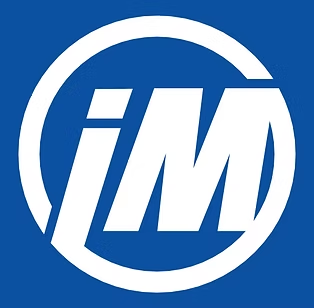
Content Authenticity Initiative
The Content Authenticity Initiative (CAI) is a cross-industry community founded in 2019 by Adobe, The New York Times, and Twitter to combat digital misinformation and provide a verifiable layer of trust for online content. With a rapidly growing membership of over 4,000, the CAI brings together technology companies, media organizations, and civil society to develop open-source tools and standards that promote transparency and give creators credit for their work.
The primary service of the CAI is the development and promotion of Content Credentials, an open-source technology that functions like a "nutrition label" for digital media. This system allows creators to attach secure, tamper-evident metadata to their content, creating a verifiable record of its origin, authorship, and edit history. This provenance data is cryptographically signed and remains with the content as it is shared and modified. The technical specifications for Content Credentials are developed by the Coalition for Content Provenance and Authenticity (C2PA), a standards development organization co-founded by Adobe.
Project Information
Related Projects

Cask Capital is an investment platform connecting investors with opportunities to own premium whisky casks of the highest quality as well as intrinsically related digital tokenized assets. It positions whisky casks as a tangible alternative asset class and facilitates the purchase of full or fractional ownership of these casks which are often sourced from renowned Scottish distilleries.
A core element of Cask Capital's operation is the use of tokenization utilizing the Hedera blockchain. This allows digital tokenized ownership of real-world casks and enhances transparency and accessibility in the competitive whisky investment market. Once acquired, the physical casks are held in regulated, bonded warehouses in Scotland, where the whisky matures over time. Their clear provenance, aging profile, and value growth make them ideal for fractional ownership on-chain.
Cask Capital provides services for the management and storage of these exclusive, curated assets which are fully-backed and insured. The value of the investment is tied to the maturation process and market demand for aged whisky.

Liithos is a AAA gaming and entertainment studio founded by high-profile industry veterans, including former PlayStation executive Michael Mumbauer and John Garvin, the creative director and writer known for blockbuster titles including Days Gone and Syphon Filter. The studio develops narrative-driven, transmedia intellectual properties that merge compelling storytelling with the capabilities of Web3 technology.
The studio’s debut project is Ashfall, a post-apocalyptic open-world game set in the Pacific Northwest. It is designed to begin as a single-player, story-focused experience that will later evolve to include multiplayer PvP and PvE elements. Liithos has chosen the Hedera network as the foundational public ledger for Ashfall and its future projects. This integration will power the game's economy, allowing players to truly own their in-game assets—such as weapons, gear, and cosmetics—as digital collectibles.
Supported by The HBAR Foundation, Liithos emphasizes that its approach is not "play-to-earn" but "play-and-own," focusing on enhancing the core AAA gaming experience rather than financial speculation.

IOWNME is a platform developed by IPrivata, a company focused on data privacy and digital rights. Its designed to provide individuals with a way to assert ownership and control over their personal data, particularly in the context of name, image, and likeness (NIL) rights for athletes.
The core of the IOWNME service is the platform’s Declaration Certificate, a legally-grounded digital certificate that establishes a root proof of authenticity for an individual's data. This certificate links the rights embedded in a patent to an individual's personal information, effectively transforming the enforcement of data privacy from a matter of privacy policy to one of property rights, intellectual property, and contract law. This provides a more robust and proactive framework for individuals to protect and monetize their personal brand and content.
The IOWNME platform is built on the Hedera network. IPrivata is working directly with the Hedera Foundation and Acoer, a DLT developer, to integrate the Declaration Certificate into the Hedera ecosystem.

WiCoin is a stablecoin launched by WiPay, a financial technology company with offices in Africa, the Caribbean, Columbia, and the US. It was launched to address the challenges of cross-border remittance and financial exclusion in its operational regions. It was built on the Hedera network utilizing the Hedera Token Service (HTS) and Hedera Smart Contract Service (HSCS) and is pegged to the US dollar.
It forms the backbone of the WiCoin Settlement Network, designed to create a unified system for transactions across numerous Caribbean islands, each with its own currency. It also extends into African markets and currencies.
The primary goal of WiCoin is to "bank the bankless" by providing an accessible and efficient means for cross-border payments and settlements by leveraging Hedera's fast transaction speeds, low and predictable fees, and robust security through its asynchronous byzantine fault tolerance (ABFT).
WiPay is supported by the Hedera HBAR foundation and seeks to enhance financial inclusion and streamline economic activity in underserved regions by providing a locally-accessible bridge between traditional banking services and low-cost, speedy digital transactions.
